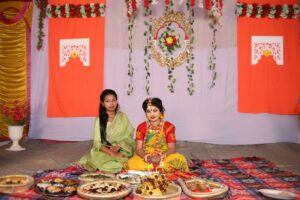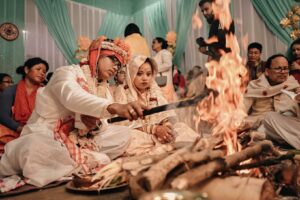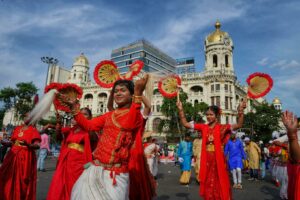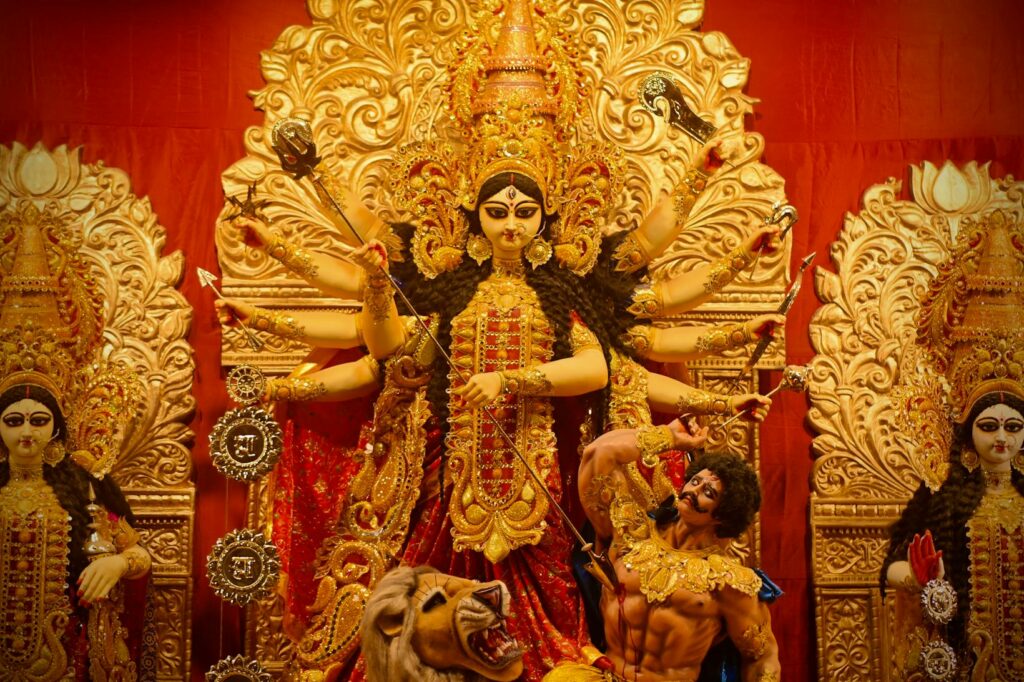Bengali religious culture offers a vibrant tapestry of traditions and beliefs that have shaped the region’s identity for centuries. Nestled in the eastern part of the Indian subcontinent, Bengal is home to a rich blend of Hindu, Muslim, Christian, and Buddhist communities, each contributing to the area’s unique spiritual landscape. This cultural diversity is celebrated through an array of colorful festivals and rituals that reflect the harmonious coexistence of various faiths.
The essence of Bengali religious culture lies in its deep-rooted spirituality and communal harmony. From the grand Durga Puja, which honors the goddess Durga, to the serene observance of Eid, every religious event is a testament to the region’s inclusive spirit.
Bengali Religion Culture
Bengali religion culture comprises a mosaic of faiths interwoven with deep-rooted traditions. Hinduism, the predominant religion, manifests through rituals and ceremonies like Durga Puja, drawing followers from various regions. This festival honors goddess Durga and is renowned for its elaborate pandals, cultural performances, and community participation.

Islam holds significant influence in Bengal, where Muslims engage in observing Ramadan and celebrating Eid. Mosques and madrasas serve as centers for spiritual and educational pursuits. The Islamic mores emphasize charity, unity, and devotion within these communities.
Christianity and Buddhism contribute to the religious identity, albeit as smaller demographics. Churches and monasteries foster environments for worship and meditation. Christmas and Buddha Purnima are celebrated with enthusiasm, underscoring the inclusive nature of Bengali society.
Bengali culture harmonizes these religious practices, where interfaith dialogue and communal gatherings promote understanding. Social events paired with religious celebrations strengthen bonds, showcasing the collective pursuit of peace and altruism.
Major Religions in Bengal
Bengal is home to diverse religious traditions that shape its cultural landscape. Hinduism, Islam, and Buddhism are the major religions influencing the region’s spiritual identity.
Hinduism

Hinduism is the predominant faith in Bengal, ingrained with a rich tapestry of rituals and festivals. Durga Puja, the most celebrated event, is marked by elaborate temples and community activities. Other notable celebrations include Saraswati Puja and Kali Puja, reflecting devotion to numerous deities. Temples and ashrams act as spiritual hubs, offering spaces for prayer, meditation, and community gatherings.
Islam
Islam holds a significant presence in Bengal, with a large Muslim population participating in vibrant traditions. Ramadan involves fasting and spiritual reflection, culminating in Eid-ul-Fitr, a festival of joy and charity. Mosques serve as key centers for religious worship and community discourse, while educational institutions like madrasas contribute to Islamic learning and cultural preservation.
Buddhism
Buddhism, although smaller in demographic size, contributes to Bengal’s spiritual fabric. Viharas and monasteries provide sanctuaries for meditation and learning. Buddha Purnima, honoring Buddha’s birth, enlightenment, and death, is a prominent festival embracing peace and reflection. Historical sites reflect the deep-rooted legacy of Buddhism, drawing pilgrims and tourists alike.
Religious Practices and Traditions
Religious practices in Bengal are woven into daily life, reflecting deep devotion and cultural heritage.
Daily Rituals

In Bengali culture, daily rituals encompass both religious and cultural elements. Hindus engage in morning prayers, offerings to household deities, and recitation of scriptures like the Bhagavad Gita. The practice of lighting oil lamps, or “diyas,” at dusk serves as a spiritual cleansing of the home. Muslims perform the salah, a set of five daily prayers, to maintain spiritual discipline and connection with Allah. Christians in Bengal begin their day with prayers and scripture readings, often centered around family devotion. These routines reflect a commitment to faith that permeates everyday activities.
Pilgrimages
Pilgrimages offer Bengali devotees the chance to deepen their spiritual connection. Hindus embark on journeys to sacred sites like the Dakshineswar Kali Temple and the Tarapith Temple, seeking blessings and spiritual rejuvenation. Muslims often visit Ajmer Sharif and Sitakunda, reflecting their spiritual devotion beyond regional boundaries. Christian pilgrimages frequently include trips to significant churches and shrines across India, often linked with saints revered in the Catholic faith.
Communal Traditions

Bengali religious culture stands as a testament to the region’s rich tapestry of faiths and traditions. It beautifully weaves together diverse beliefs, fostering a spirit of unity and celebration. The vibrant festivals and daily practices highlight a deep commitment to spirituality and communal harmony. As Bengal navigates the challenges of modernity, efforts to preserve this cultural heritage while embracing change remain vital. Through interfaith dialogue and sustainable practices, Bengali religious culture continues to inspire and unite, reflecting a collective pursuit of peace and shared values that resonate across generations.

